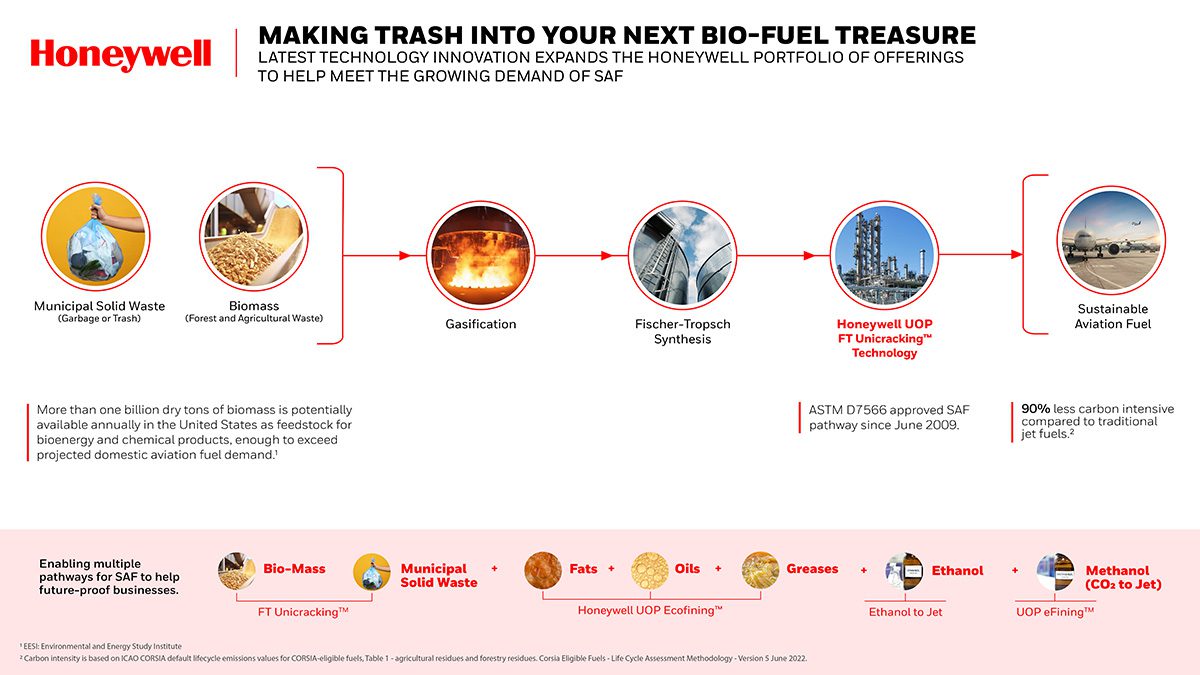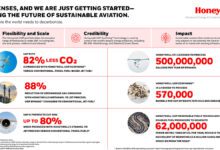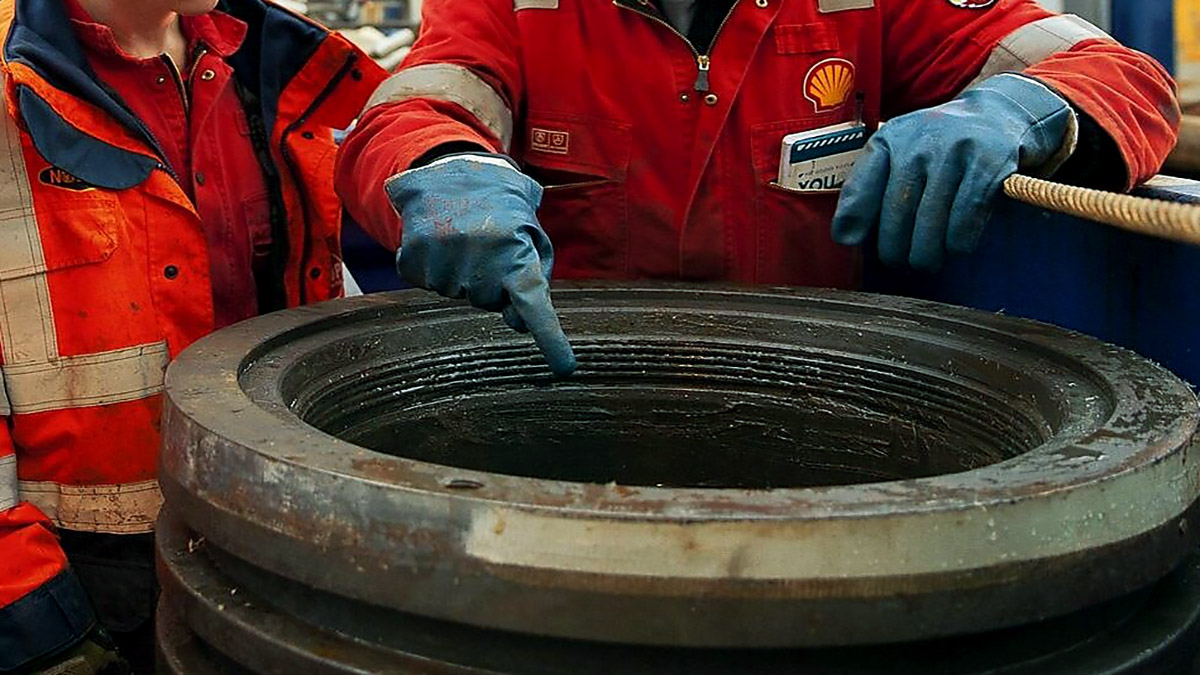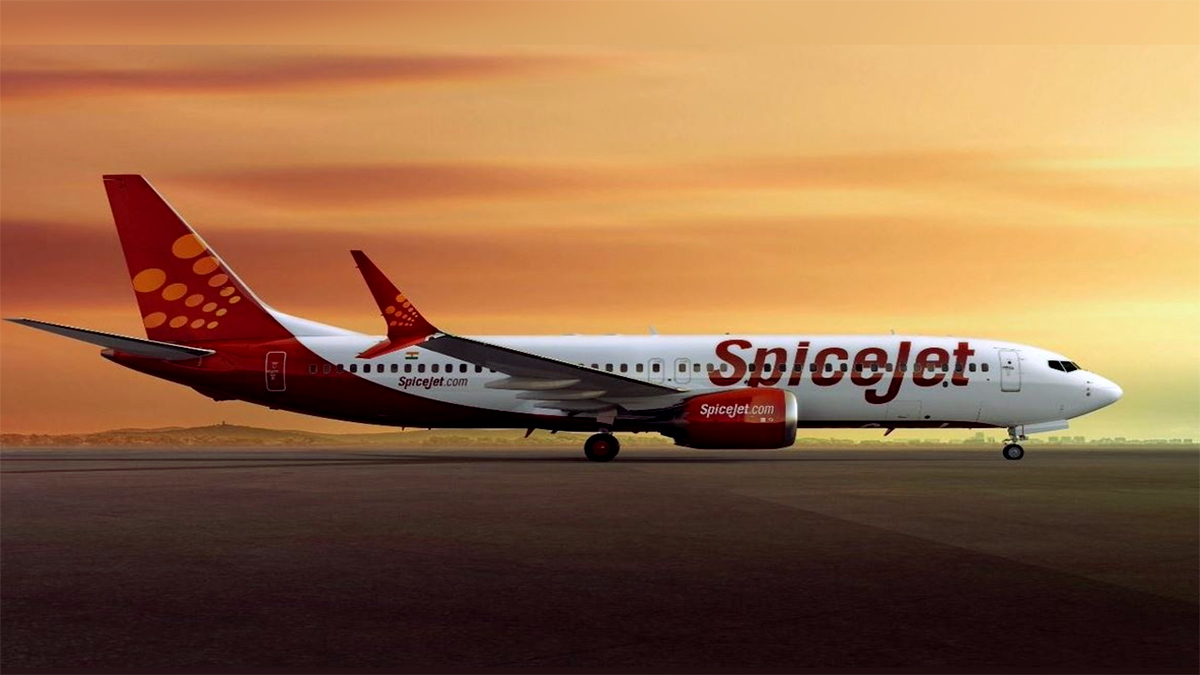In a significant stride towards sustainable aviation, Honeywell has unveiled its latest hydrocracking technology capable of producing sustainable aviation fuel (SAF) from biomass. This breakthrough technology promises to make SAF 90% less carbon-intensive than traditional fossil-based jet fuels, while also reducing costs and waste.
Honeywell’s hydrocracking technology, coupled with its Fischer-Tropsch (FT) Unicracking process, converts liquids and waxes from processed biomass into high-quality SAF. This includes biomass leftovers from crops, wood waste, or food scraps. The resulting SAF complies with the rigorous standards of the aviation industry, offering a lower environmental impact.
Ken West, President, and CEO of Honeywell Energy and Sustainability Solutions, commented, “As demand for SAF continues to grow, the aviation industry is challenged by limited supplies of traditional SAF feedstocks. When combined with the existing Fischer-Tropsch process, our new technology will expand the feedstock options available in the industry to sources that are more plentiful, ultimately helping improve our customers’ ability to produce SAF.”
The benefits of Honeywell’s hydrocracking technology are significant. It produces 3-5% more SAF, enables a cost reduction of up to 20%, and significantly reduces by-product waste streams compared to other commonly used hydroprocessing technologies.
DG Fuels, the world’s largest SAF producer, has already selected Honeywell’s FT Unicracking technology for its biofuels manufacturing facility in Louisiana. When operational in 2028, this facility will produce 13,000 barrels of SAF each day, enough to supply more than 30,000 transatlantic flights annually.
Michael Darcy, CEO of DG Fuels, emphasised the impact of this partnership, stating, “Using Honeywell’s advanced technology, DG Fuels will supply enough fuel for more than 30,000 transatlantic flights every year, contributing significantly to reducing the carbon emissions of global air travel.”
Honeywell has been at the forefront of SAF production, having pioneered SAF production with its Ecofining process since 2016. The company now offers solutions across a range of feedstocks to meet the rapidly growing demand for renewable fuels. Honeywell’s renewable fuels portfolio includes Ethanol to Jet technology and eFinin, which converts green hydrogen and carbon dioxide into e-fuels.
With more than 50 sites globally licensed to use Honeywell’s SAF technologies, refineries are projected to exceed a combined capacity of more than 500,000 barrels of SAF per day when fully operational. This significant milestone represents a substantial leap towards achieving the airline industry’s goal of reaching net-zero carbon emissions from international aviation by 2050.







